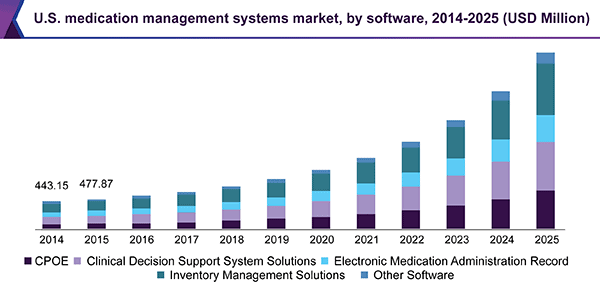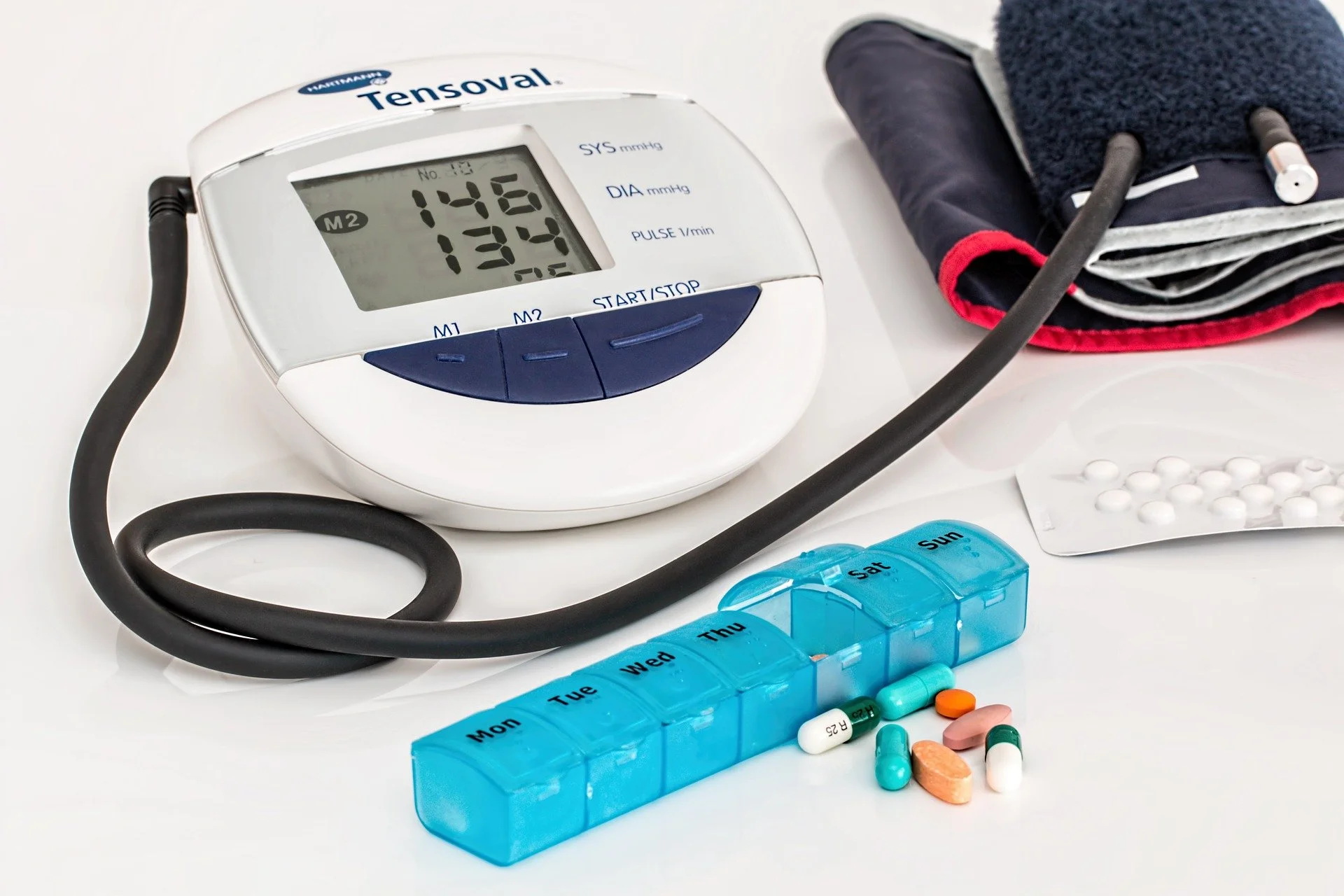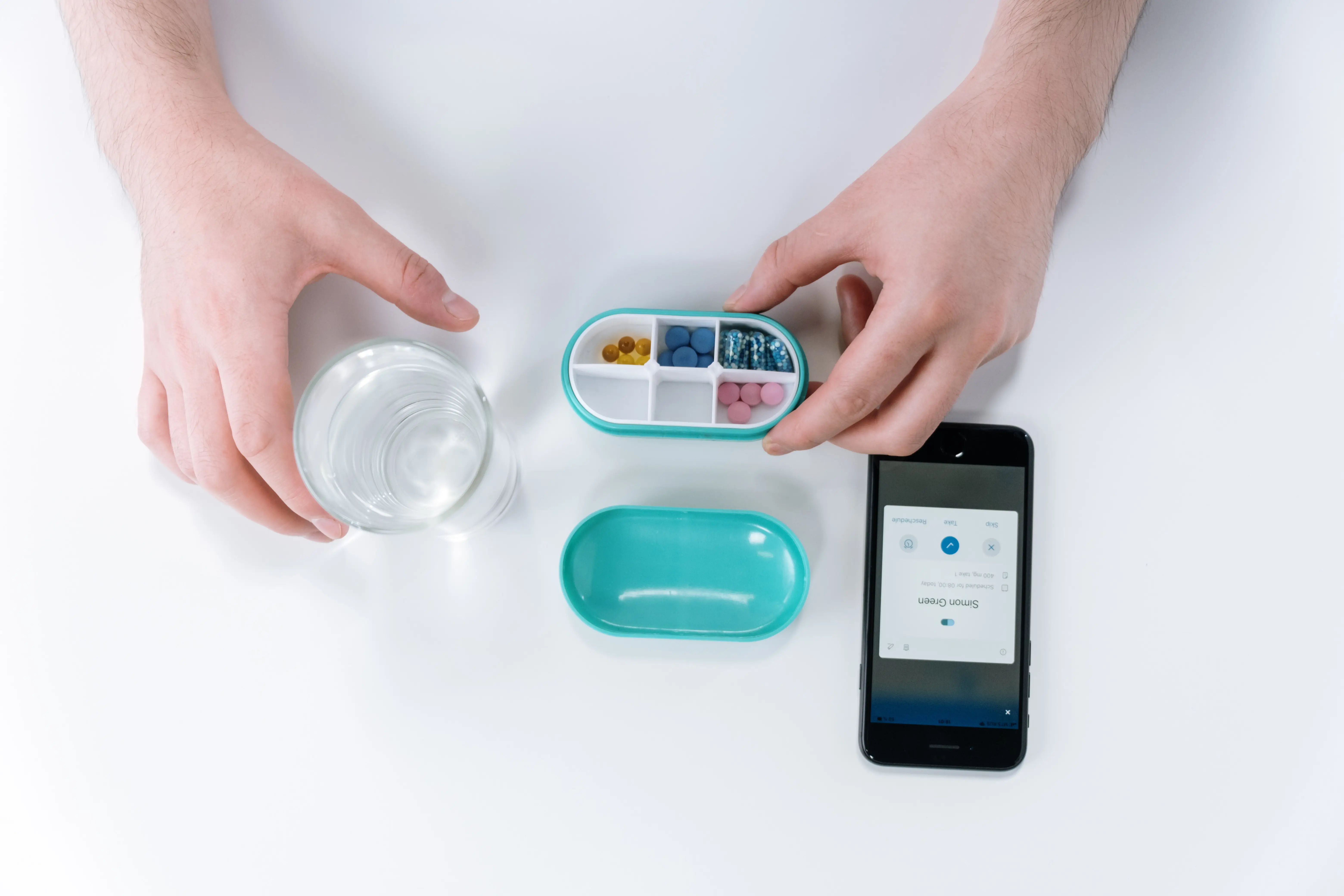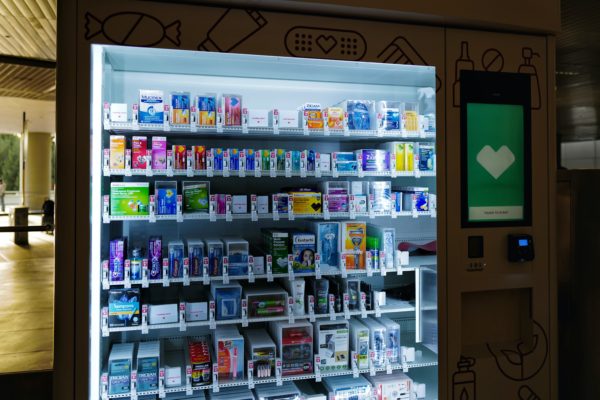Hardly any effective treatment can avoid the use of medication for the patient to fully recover from the disease. Most of the time, the responsibility for its intake lies exactly on the patient’s shoulders — and that’s where the trouble begins. Sometimes we’re too busy with other things, so we forget to take the pills, other times we can forget to refill or even buy them after the doctor’s visit. Luckily, the IT industry has a solution to get rid of such issues and ensure the timely intake of the prescribed medicine. This solution is a medication management app.
In a nutshell, this is an application that helps the patients — and doctors — track the medication intake, remind about the refills, show the medication information, and much more. With the fast rise of telehealth services and the e-health market, medication management app development seem like a great market opportunity for the iT businesses. It is so, yet it has a lot of things the company should know before agreeing to create an application for medication management. The major factors include the app type, its functionality, intended market, platform, users, and e-prescription software features. Let’s discuss each of them in detail.
Reasons Why the Medication Management App Market Grows Fast
The endless opportunities of the current informational technologies made a huge impact on the healthcare industry and medical IoT. The market of medication management systems is expected to reach 1.6 billion USD by 2025 from an estimated 443.15 million in 2014. The reason? Better adoption of the IoT technologies in the healthcare sector, more value for the patients, and the need to make healthcare easily accessible, particularly in the post-COVID time.

Source: Grand View Research
How do medication management apps work?
Think of it as a project management app but for medication. Whatever prescription the patient gets, s/he needs to make sure that:
- S/he receives it as regularly as needed in the required dosage
- Its active ingredients are known at all times
- It will remind when it’s time for a refill
Creating medication management application can be aimed at reminding or tracking the intake. There is a big difference between the two as the first works pretty much like the phone reminders about important tasks (organizers, for instance), and the second requires the patient’s action that confirms the intake. We’ll dive into this in a bit.
Creating medication management app presupposes the end product to do all that and a few more things. A good app should always:
- List the active drug and the instructions
- Have an intake schedule
- Remind about the intake and refill
- Track the intake with the patient
- Show the dosage
- Be integrated into the healthcare network for the doctors to see what medication the patient uses now
- Protect patient’s health information (PHI) and comply with the legal requirements of the countries it’s developed for
The full functionality of the app, however, is closely related to those who are going to use it. There are four main categories of medication app users:
- High-risk patients whose conditions and medication intake need thorough control (patients after a heart attack, with increased blood pressure or blood sugar level disorders, etc.)
- Patients who are prescribed high-risk medicine, i.e., the ones that influence mental processes and have severe consequences of overdosing
- Elderly people and those who have memory issues and might forget about the medicine
- Caregivers/parents who want to manage the medicine intake of their kids

Each of these categories has its own reasoning to use the drug testing management software. Let’s review why developing apps to help with medication management is a successful business venture.
Problems the Medication Management Software Can Solve
- Difficult and time-consuming manual scheduling (particularly if there should be some interval between the medications)
- Patient-related errors like skipping or dosage misuse
- Forgetting to refill/reorder the drugs (especially if the patients need to follow the schedule at all times)
- Medical history is unavailable to the patients and doctors (including the data on allergies or severe side effects experienced in the past)
- Inability to locate the drug for ordering
- Lack of tracking
Making medication management app requires an understanding of the user’s needs and the context of use for it to be successful in the market. Generally, they’re divided into two types: reminders and managers. Let’s review them in more detail.
Main Types of Medication Management Apps
Answering the “how to create apps to help with medication management” question without knowing the expected functionality is impossible. From this perspective, they can be divided into apps that remind about the pills or those that help manage the whole process. Here’s the difference.
Medication reminders
They can be simple medication reminders (SMRs) or advanced medication reminders (ADRs). These apps allow the users to schedule the intake time, enable notification regarding the refills, scan the information from the packages and pictures. The ADRs, however, offer timezone support during the travels, have user’s notes, track the missed dosages or late intakes.
Medication managers
Medication managing apps (MMAs) have the features of the two above and on top of that, they allow the users to create multiple accounts, store personal health data, and share the information with doctors. These options are especially useful when medication adherence is needed before some procedures, like chemo or surgery.
Now that we’ve covered the types, let’s see how to make apps to manage medications that would be worthy of the investments.
Medication Management Apps: Review of the Functionality
One of the main things that ensure the app’s success is its multifunctionality and interoperability. This is how it’s achieved.
- The app has the technologies that allow for streaming the educational content, thus increasing the awareness level
- It sends the notification, reminders, and alerts on the devices it’s connected to
- It expands the health management capabilities allowing appointments booking and medication history accessing
- The app stores the healthcare information and allows to track it externally by the authorized parties
- It enables getting online prescriptions and renew ones without visiting the doctor’s office in person
- It supports e-billing options, including automatic bill processing, payment gateway for repeat prescriptions, creating payment history, and storing the payment data. This option, though, needs to fully comply with the requirements for healthcare payment processing.
To allow these functions, the app needs to have some features integrated into the software. Let’s see which to consider when developing a medication management app from the scratch.
Medication Management App Development: A List of Must-have Features
When you create a mobile app for medication management, you should include plenty of features and functions that correspond to both clients’ needs, market availability, your business model, pharmacy preceptor development requirements, and legal base. Below is the list of functions that should be included whether you’re working on the functioning prototype to turn into a working app later or start with rolling out a fully-fledged app right away.
Digital Planner
This is the main managing app function whether we’re talking a reminder or tracker. While using the app, the patient should be able to create a schedule for a day, week, or month by typing in the medication information (name, dosage, frequency, duration).

Smart Reminders
They can be sent as SMSs, app notifications, or emails to notify the patients when it’s time to take their meds. Advanced apps send them to the caregivers or relatives as well to ensure that the patients didn’t miss the procedure. Better yet, they won’t stop buzzing until the patient confirms the intake.
Compatibility Algorithm
Some medicine isn’t working well together because they reduce the efficacy of each other or even worse — may cause severe damages to the patients. This is why the app should use a reliable algorithm that will send alerts if some pills contain ingredients that aren’t compatible. Plus, it’s nice to add the input field for the patient to state the allergies or if one is pregnant to prevent the unexpected after-effects.
Renewal Alerts
Based on the input information about the medicine, its dosage, and intake frequency, the app figures out the date when a patient needs a refill and sends a renewal alert. It’s possible, however, to integrate a renewal prescription form that will be sent to the doctors directly and after the approval — to the pharmacy. What’s left for the patient is to stop by the pharmacy and pick up the medication.
Pill Identifier
This feature allows one to see the drug description and identify one’s class by simply snapping the photo of the package. Alternatively, one can type in the characteristics and the name for the information to pop up.
Location Search
Integrating the map that shows the nearest drugstores with the necessary medication in stock is another must-have feature to keep in mind when you research how to develop medication management app that will help users the most. First, nobody has the time to call the drugstores searching for the necessary item, let alone drive around, which can be the reason for delaying the start of therapy. Secondly, when the patient knows where s/he can buy the medicine and how to get there increases the chance that one will adhere to the treatment plan. And that’s the main goal of such applications.

Missed Doses Tracker
Keeping records of drug intake is helpful for the doctors to assess whether the particular medicine does its job or it needs to be changed/corrected. It also helps the patients to remember if and when they’ve had it to avoid overdosing.
Sharing
An essential part of the app is to create records that are easily shareable or at least convertible into a separate document. This function allows one to share the medication schedule and prescriptions with the providers and family, which decreases the risk of being prescribed a drug that causes allergic reactions or one that isn’t compatible.
Assistant
Gamification can be of help when it comes to how to build medication management app as knowing that there is someone that reminds you to do the routine. It can be a virtual buddy or real person who’ll receive notification in case a patient forgets about the drug.
Synchronization
If the patient uses various devices, the developers should think about how to develop an app for medication management that could work on different platforms (Android, iOS, or both) and get synced automatically. It adds bonus points to the user experience with the app and also ensures steady tracking.
All these features are the necessary minimum for the drug management app to offer value to the clients. Of course, they will define the development cost as they require certain technologies for implementation, but they are just a part that influences the price. Below we’ll define a few more things that can increase the bill.
Factors to Affect the Medication Management App Development Cost
While it’s impossible to name a definite number without doing the pre-development stages, Empeek can list the factors that will influence the end price.
- Technologies used in the back- and front-end development
- Potential scalability
- MVP or ready-to-market product maturity
- The platform it’s intended for (Android, iOS)
- Number of users within one account
- Integration into the existing healthcare software or creation of an autonomous application
- Technologies and standards required by the government
After a careful study of the requirements and the client’s brief, we do our research to come up with the best type of pharmacy software solutions that suits your practice and is needed by your clients. But that’s not the only perk of working with Empeek.

Consider Our Company Your Trusted Partner
Empeek team has the expertise in developing healthcare software, CRMs, IoT products, and EHR/EMR intended for use in American and European hospitals and private practices. We’re aware that strict industry regulations may be stumbling blocks for considering the implementation of such apps. One of our alike projects is the drug testing software system. From this experience, we’ve learned that if developers build their solutions based on the legal, client, and user requirements, the end product won’t compromise patients’ safety or the hospital’s reputation, will take less time to market, and will get easily approved.
Final Thoughts
When there’s a need to outsource development of medical devices, turn to the company, that has proven expertise. Having an assistant that eases medication management is what modern patients need to reach better outcomes. Not only they make the patients’ treatment more organized and hence — effective, but they can also provide the doctors with the monitoring opportunity and correct the treatment plan if needed. Moreover, they increase the awareness level among the patients and provide them with more information needed for better involvement in the process. However, there are plenty of technical and legal issues to consider before searching how to develop medication management application. The good news is that the Empeek team is ready to take care of all those issues, so you don’t have to. Contact our managers now and let’s discuss how we can make medication management for your patients easy and effective.








